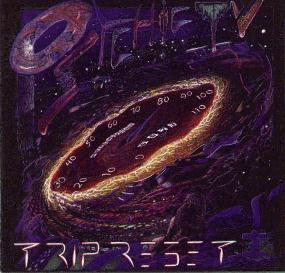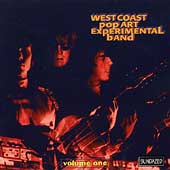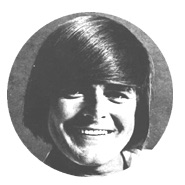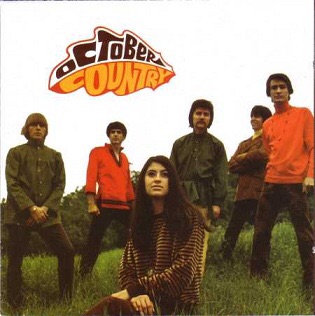
Axis: Bold as Love is the second studio album by the Jimi Hendrix Experience. It was first released by Track Records in the United Kingdom on December 1, 1967, only seven months after the release of the group's highly successful debut album, Are You Experienced. In the United States, Reprise Records delayed the release until the following month. The album reached the top ten in the album charts in both countries.

The Fire Inside is the fourteenth studio album by American singer-songwriter Bob Seger. The album was released in mid 1991 on the record label, Capitol. It was Seger's first album of entirely new music since Like a Rock in 1986. Though credited to "The Silver Bullet Band", much of the album used guest and session musicians, with limited contributions from Silver Bullet Band members. Among the guest artists on the album are Joe Walsh, Bruce Hornsby, Roy Bittan, Steve Lukather, Don Was, Waddy Wachtel, Rick Vito, Mike Campbell, Patty Smyth, Lisa Germano, and Kenny Aronoff.

Trip Reset is a 1996 album credited to Genesis P-Orridge and Psychic TV featuring The Angels of Light.

The West Coast Pop Art Experimental Band (WCPAEB) was an American psychedelic rock band formed in Los Angeles, California, in 1965. The group created music that possessed an eerie, and at times sinister atmosphere, and contained material that was bluntly political, childlike, and bizarre. Representing different musical backgrounds among band members, the group, at times, resembled a traditional Byrds-esque folk rock ensemble, but the WCPAEB also, within the same body of work, recorded avant-garde music marked by multi-layered vocal harmonies.

The Hunger is the fifth studio album by American recording artist Michael Bolton. It was released in 1987 by Columbia Records, his third for the label. It became Bolton's breakthrough album, producing his first two Top 40 hits in the United States, the ballad "That's What Love Is All About" and the Otis Redding cover "(Sittin' On) The Dock of the Bay".

Volume 3: A Child's Guide to Good and Evil is the fourth album by the American psychedelic rock band The West Coast Pop Art Experimental Band (WCPAEB), and was released on Reprise Records in May 1968. By the time the group commenced recording Volume 3, guitarist Danny Harris had excused himself from the WCPAEB, reducing their numbers to a trio. As with the WCPAEB's earlier work, the album saw the band continue to blend psychedelic influences and complex studio techniques, and was marked by a bizarre fusion of innocence and malice in the band's lyrics. Volume 3 featured the WCPAEB's most ambitious music to date, and the striking cover art of John Van Hamersveld, yet it failed to sell in sufficient copies to chart nationally. In more recent times, the album has been considered the band's most accomplished work and a masterpiece of the psychedelic genre.

Volume One is the first album recorded by the psychedelic rock band the West Coast Pop Art Experimental Band. It was first released in 1966 on the small FiFo Records label. It was reissued in both compact disc and vinyl in 1997 by Sundazed. The album features covers of pop classics such as Richard Berry's "Louie, Louie" and the Kinks' "You Really Got Me". The songs mellow out into a blues/folk style with covers of Bob Dylan songs.

Volume 2 (Breaking Through) is the third album by the American psychedelic rock group, the West Coast Pop Art Experimental Band, and was released in October 1967 on Reprise Records (R 6270 mono, RS 6270 stereo). At the time of recording, Michael Lloyd was not present so the group was reduced to Bob Markley and the Harris brothers, with additional uncredited contributions from Ron Morgan. On the back of original LP release appears 'Breaking Through' and the declaration: "Every song in this album has been written, arranged, sung and played by the group. No one censored us. We got to say everything we wanted to say, in the way we wanted to say it".

Part One is the second album by the American psychedelic rock group The West Coast Pop Art Experimental Band, and was released in February 1967 on Reprise Records. It features compositions by Bob Johnston, Frank Zappa, Baker Knight, P.F. Sloan and Van Dyke Parks with input from studio drummer Hal Blaine. It has a song most well known as "Morning Dew" composed by Bonnie Dobson with arrangement by Danny Harris. This is the first album with input from guitarist Ron Morgan.

Where's My Daddy? is the fifth album by the American psychedelic rock group, the West Coast Pop Art Experimental Band, and was released in 1969 on Amos Records, which was owned by Jimmy Bowen. Amos Records signed them after Reprise Records dropped the band from their label following the commercial failure of their first three albums. It features compositions by Danny Harris, Michael Lloyd and Shaun Harris with lyrics by Bob Markley. On the original pressing, Lloyd's contributions were not noted on the back cover as a type of punishment by Markley for recent disagreements with each other. However, promotional copies do show Michael Lloyd's contributions noted on the back cover.

Robert H. Markley was an American singer-songwriter and record producer who co-founded the psychedelic rock band, The West Coast Pop Art Experimental Band, in the late 1960s, and became one of the most controversial figures that emerged from the era.
Michael Jeffrey Lloyd is an American record producer, arranger, songwriter and musician. After working with Mike Curb, Kim Fowley and others in the mid-to-late 1960s on musical projects including the West Coast Pop Art Experimental Band, and Steven Spielberg's first short film, Amblin', he became a producer of such teen idol pop stars as the Osmonds, Shaun Cassidy and Leif Garrett in the 1970s.

"Smell of Incense" is a song by the American psychedelic rock band the West Coast Pop Art Experimental Band, written by Ron Morgan and Bob Markley, and was released as a single on Reprise Records in 1968.

The West Coast Pop Art Experimental Band Companion is a compilation album by the American psychedelic rock band the West Coast Pop Art Experimental Band (WCPAEB), and was released on Sunbeam Records on June 7, 2011. The album is a collection of demos, tracks that appear on early singles, and rare material that derive mostly from the group members' side-projects before, during, and after the WCPAEB's recording career.
The Fire Escape was an American psychedelic rock band formed in San Francisco, California, in 1967. Existing mainly as a studio group composed of unknown session musicians, the band was masterminded by record producer Kim Fowley and Michael Lloyd. The project produced one album called Psychotic Reaction, which contained mainly cover versions of popular songs from the era. It is reported that Sky Saxon of the garage rock band, the Seeds and Mars Bonfire of Steppenwolf, played on some of the tracks.

October Country was an American folk rock band formed in Los Angeles, California, in 1967. For musician Michael Lloyd, the group was one of his earliest projects with him assuming the role of record producer. It also was another side-project, along with the Smoke, California Spectrum, and the Fire Escape, during a period in which Lloyd was absent from the West Coast Pop Art Experimental Band. October Country recorded one self-titled album in 1968 and is best-remembered for the track "My Girlfriend Is a Witch". They are credited as the musicians for the Steven Spielberg short-film, Amblin'.
Shaun Harris is an American musician best-remembered as the bassist of the psychedelic rock band the West Coast Pop Art Experimental Band (WCPAEB). Throughout his music career, Harris worked closely with Michael Lloyd on projects outside the WCPAEB including the Rogues, California Spectrum, and Brigadune. In 1973, he recorded a self-titled solo album on Capitol Records.

FiFo Records was an American record label established by singer-songwriters Bob Markley and Baker Knight in Los Angeles, California, in 1961. Following Markley's unsuccessful stint with Warner Bros. Records as a solo artist, he teamed up with Knight, a co-writer on both of Markley's two singles, to found the label, which recorded a variety of pop, R&B, and folk musical acts. FiFo is best-known, however, as the label that released the debut album by the psychedelic rock group the West Coast Pop Art Experimental Band in 1966.

Shadows of Knight is the third studio album by American garage rock band The Shadows of Knight, and was released on Super K Productions, SKS 6002, in 1969. Recording for the album came after lead vocalist Jim Sohns revamped the Shadows of Knight's line-up and signed with Super K. Although Shadows of Knight did not chart and was the last album featuring new material by the group until A Knight to Remember, a single taken from the effort, "Shake", became a moderate national success in the United States.
John A. Ware is an American drummer and percussionist known primarily for his session and live performance work.
















